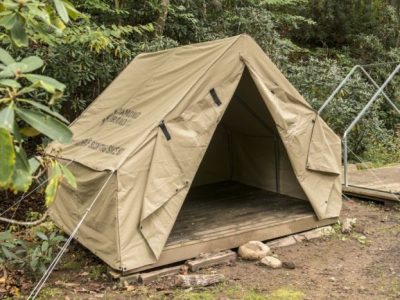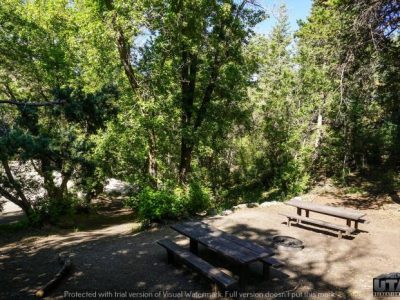As Scout camping permits and regulations take center stage, this comprehensive guide delves into the intricacies of obtaining permits and adhering to regulations for a safe, enjoyable, and educational camping experience.
Navigating the nuances of Scout camping permits and regulations is essential for ensuring a responsible and rewarding outdoor adventure. This guide provides a comprehensive overview of the permit application process, applicable regulations, potential consequences of non-compliance, and best practices for responsible camping.
Scout Camping Permits
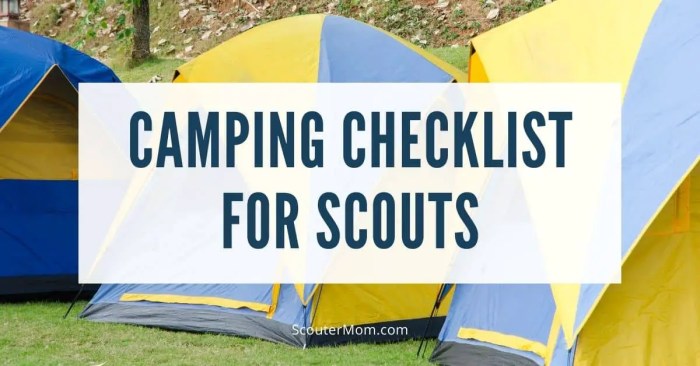
Scout camping permits are crucial for organized youth groups seeking to establish temporary campsites in designated areas. These permits serve multiple purposes, including ensuring the safety and well-being of participants, preserving the environment, and promoting responsible outdoor recreation.
Obtaining a scout camping permit is mandatory for groups wishing to camp in national forests, state parks, and other public lands managed by federal, state, or local agencies. The specific requirements vary depending on the jurisdiction, but generally, permits are required for groups exceeding a certain size or staying for an extended period.
Application Process
The application process for scout camping permits typically involves the following steps:
- Contact the appropriate land management agency to determine permit availability and regulations.
- Submit a completed application form, which may include information such as the group size, dates of stay, and campsite preferences.
- Pay any required fees associated with the permit.
- Receive the permit and any additional instructions or regulations.
It is important to apply for permits well in advance, as they may take time to process and availability can be limited, especially during peak season.
Scout Camping Regulations

Adhering to established regulations is paramount for ensuring the safety, preservation, and enjoyment of scout camping experiences. These regulations encompass general guidelines as well as specific rules pertaining to campsite usage, fire safety, waste disposal, group size, noise levels, and wildlife interactions.
General regulations govern aspects such as the designated areas for camping, the number of tents and campers permitted, and the duration of stay. Respecting these regulations helps maintain order and minimize impact on the natural environment.
Campsite Usage
Specific regulations related to campsite usage aim to preserve the integrity of the surroundings. Campers must adhere to designated campsites and avoid disturbing vegetation or wildlife habitats. Proper tent placement and the use of ground cloths help protect the ground cover.
Fire Safety
Fire safety regulations are crucial for preventing wildfires and ensuring the well-being of campers. Building fires is typically restricted to designated fire rings, and campers must exercise caution when lighting and extinguishing fires. Leaving fires unattended or failing to extinguish them properly can have severe consequences.
Waste Disposal
Proper waste disposal is essential for maintaining a clean and healthy camping environment. Campers are responsible for packing out all trash and disposing of it in designated receptacles. Leaving waste behind not only detracts from the aesthetic beauty of the campsite but also poses risks to wildlife.
Group Size and Noise Levels
Regulations governing group size and noise levels aim to minimize disturbances to other campers and wildlife. Group size limits help prevent overcrowding and ensure a peaceful atmosphere. Noise levels must be kept within reasonable limits, especially during evening and early morning hours, to respect the tranquility of the surroundings.
Wildlife Interactions, Scout camping permits and regulations
Respecting wildlife is a fundamental aspect of responsible camping. Campers must avoid approaching or feeding wild animals and store food properly to prevent attracting them. Maintaining a safe distance and observing wildlife from afar helps preserve their natural behavior and ensures the safety of both campers and animals.
Consequences of Non-Compliance: Scout Camping Permits And Regulations
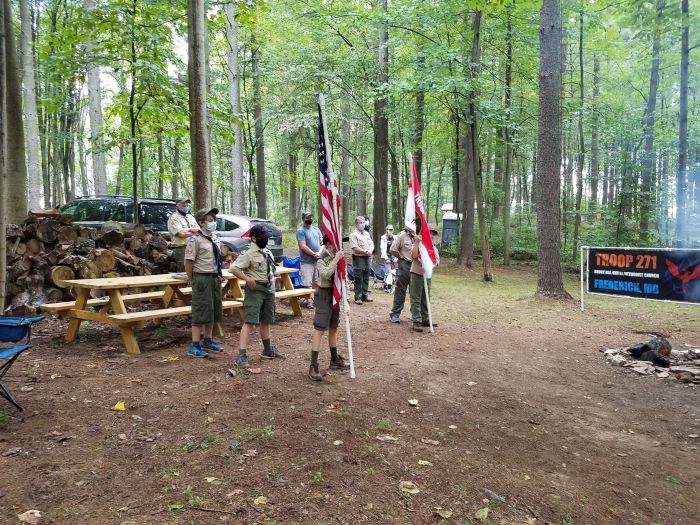
Failing to comply with scout camping regulations can have serious consequences, including fines, citations, and even criminal charges.
The specific penalties for violating scout camping regulations vary depending on the jurisdiction and the severity of the violation. However, some common penalties include:
Fines
- Fines for camping without a permit can range from $50 to $500 or more.
- Fines for violating other camping regulations, such as noise violations or littering, can also be significant.
Citations
- Citations for camping without a permit or violating other camping regulations can result in points being added to a driver’s license.
- Multiple citations can lead to a license suspension or revocation.
Criminal Charges
- In some cases, violating scout camping regulations can lead to criminal charges, such as trespassing or disorderly conduct.
- Criminal charges can result in jail time, fines, or both.
In addition to these penalties, violating scout camping regulations can also lead to other negative consequences, such as:
- Damage to the environment
- Disturbance of wildlife
- Conflict with other campers
It is important to be aware of the consequences of non-compliance with scout camping regulations and to take steps to avoid violating these regulations.
Best Practices for Responsible Camping
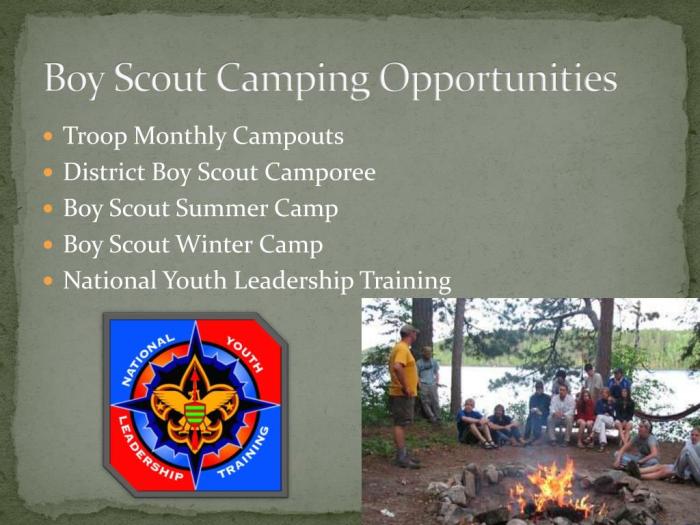
Scouting groups play a vital role in fostering environmental stewardship among youth. By adhering to responsible camping practices, scouts can minimize their impact on the natural surroundings and preserve the wilderness for future generations.
Leave No Trace principles guide responsible camping, emphasizing the preservation of natural habitats and the respect for wildlife. Scouts should embrace these principles to ensure their camping experiences align with environmental conservation.
Minimizing Impact on Natural Surroundings
- Choose established campsites to avoid damaging vegetation.
- Use designated fire rings and avoid creating new ones to prevent soil erosion.
- Pack out all trash, including food scraps, to prevent wildlife attraction and habitat disruption.
Respecting Wildlife
- Observe wildlife from a distance to avoid disturbing their natural behaviors.
- Never feed wild animals, as it can alter their feeding habits and lead to dependency.
- Store food and scented items properly in bear-proof containers or elevated off the ground to prevent conflicts with wildlife.
Promoting Leave No Trace Principles
- Educate scouts on Leave No Trace principles and their importance in preserving the environment.
- Encourage scouts to practice these principles throughout their camping trip, setting an example for others.
- Lead by example and demonstrate responsible camping behaviors, such as properly disposing of waste and respecting wildlife.
Educational Value of Scout Camping
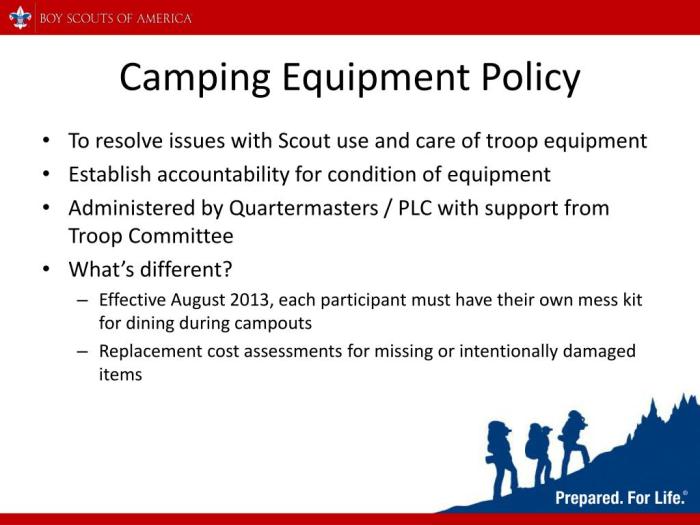
Scout camping experiences offer a myriad of educational benefits, fostering essential life skills and enriching young minds. Camping immerses Scouts in nature, providing hands-on opportunities to learn about the environment, wildlife, and conservation.
Beyond environmental education, camping also cultivates teamwork, problem-solving, and leadership abilities. Scouts learn to work together in challenging situations, share responsibilities, and make collective decisions. They develop problem-solving skills through practical experiences, such as setting up tents, cooking meals, and navigating unfamiliar terrain.
Leadership Development
Camping provides a platform for Scouts to develop their leadership potential. They are encouraged to take on leadership roles within their patrols, plan activities, and motivate their peers. This fosters self-confidence, decision-making abilities, and a sense of responsibility.
Project-Based Learning
Camping trips often incorporate project-based learning activities that enhance educational outcomes. Scouts may engage in projects such as building shelters, constructing campfires, or designing hiking trails. These hands-on experiences reinforce STEM principles, encourage creativity, and develop practical skills.
Resources for Scout Camping Permits and Regulations
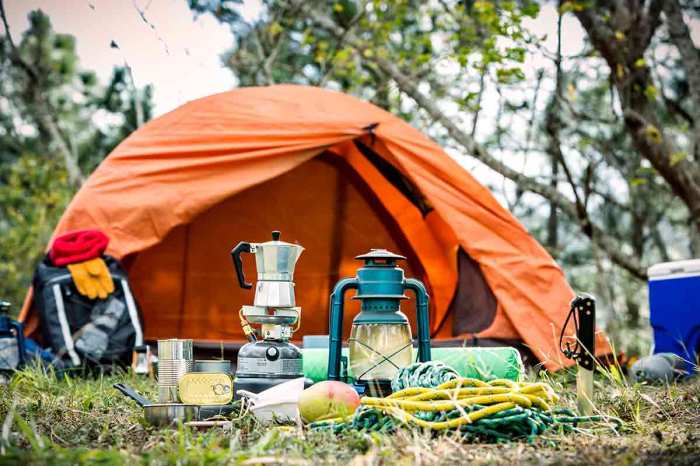
For comprehensive information on camping permits and regulations, scouts and leaders can refer to the following resources:
Online Resources
- National Park Service website: https://www.nps.gov/index.htm provides information on camping regulations and permits for national parks.
- US Forest Service website: https://www.fs.usda.gov/ offers details on camping permits and regulations for national forests.
- Bureau of Land Management website: https://www.blm.gov/ provides information on camping permits and regulations for public lands managed by the BLM.
- American Camping Association website: https://www.acacamps.org/ offers resources on camping safety, regulations, and permit requirements.
Printed Materials
Physical copies of camping regulations and permit applications can be obtained from the following sources:
- National Park Service visitor centers:Most national parks have visitor centers that provide printed materials on camping regulations and permits.
- US Forest Service ranger stations:Ranger stations located within national forests offer printed materials on camping regulations and permits.
- Bureau of Land Management field offices:BLM field offices provide printed materials on camping regulations and permits for public lands under their management.
Contact Information
For further assistance or inquiries, scouts and leaders can contact the following organizations:
- National Park Service:1-800-365-2267
- US Forest Service:1-877-444-6777
- Bureau of Land Management:1-800-689-8331
- American Camping Association:1-800-428-CAMP (2267)
Last Word
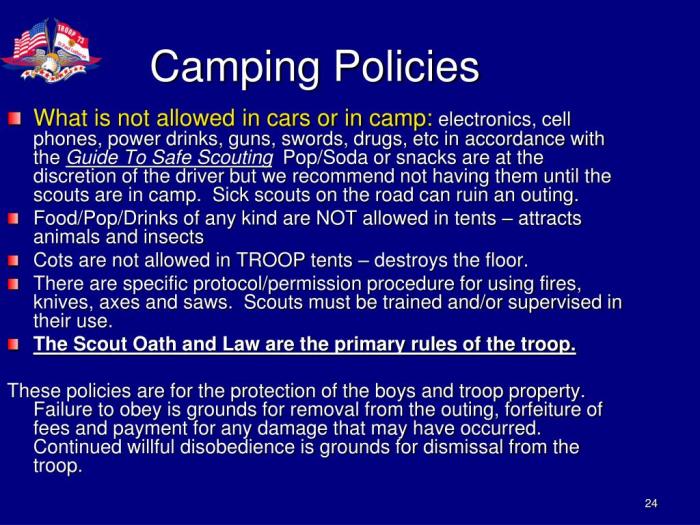
Understanding and adhering to Scout camping permits and regulations empowers scouts and leaders to engage in responsible camping practices, minimize their environmental impact, and create a positive and memorable outdoor experience for all.
Q&A
Q: Why are Scout camping permits necessary?
A: Permits help manage the use of public lands, ensure safety, and protect natural resources.
Q: What entities require Scout camping permits?
A: National parks, state parks, forests, and other public lands typically require permits for group camping.
Q: What are the consequences of violating Scout camping regulations?
A: Violations can result in fines, citations, or even permit revocation.

